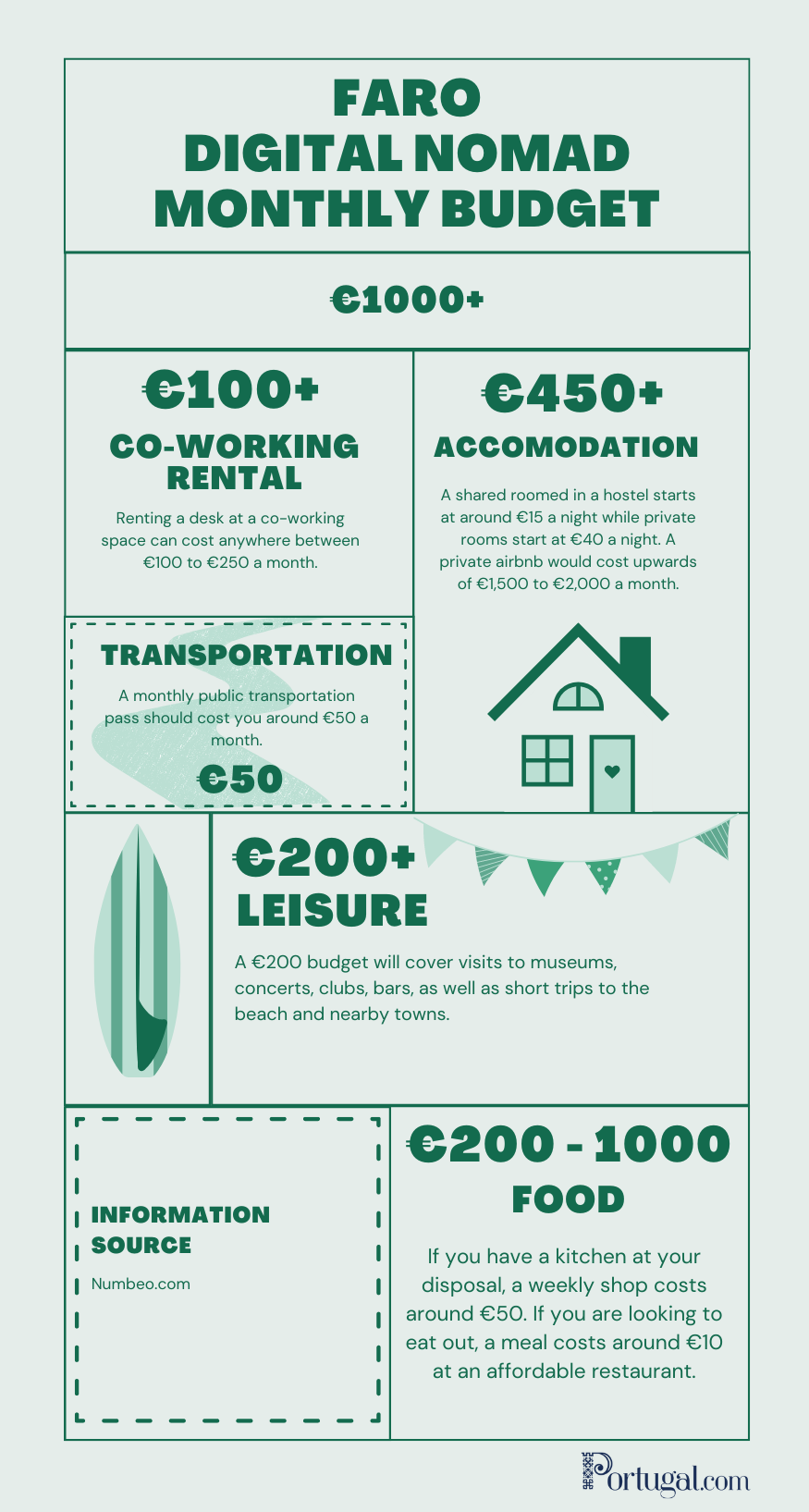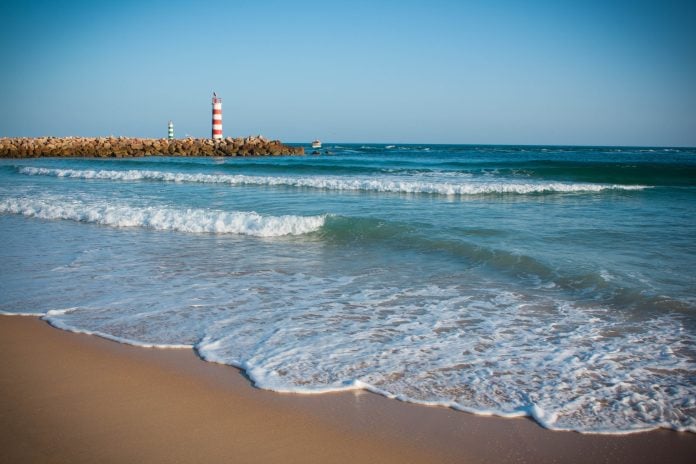Faro is located in the Algarve region in southern Portugal and is home to a vibrant expat community. Known for its year-round sunny weather, Faro has some of the warmest weather in the country and the best beaches in Portugal.
But is it expensive to live in Faro? Portugal has a lower cost of living than major European countries such as the Netherlands, Italy, and France.
Although Faro is not the cheapest city in Portugal, it is more affordable than the capital Lisbon. Rent is around 20% cheaper, and day-to-day costs such as restaurant prices are also more affordable than in Lisbon.
If you’re considering Faro as a permanent or temporary home, let’s take a look at the average monthly budget for expats without children, families, and digital nomads.
Guide to Faro
Cost of Living in Faro for an Expat
The monthly budget for an expat in Faro is less than €1400.
A one-bedroom apartment costs around €750. However, you can save here by renting a room for less than €400.
A monthly transportation pass is around €50 or less for buses. You can also get a train to many cities from Faro, such as Lisbon and Porto.
Utilities cost around €150, including phone data and cable TV.
For exploring Faro, eating out at your favorite restaurants, and exploring the nightlife, budget around €200 a month. You can easily spend less or more, depending on your lifestyle.
Groceries for a single person average out at around €50 a week.
Health care could add to your monthly budget in Faro. EU citizens with a valid European Health Insurance Card can use the National Health Service (SNS) for free for up to 90 days in Portugal. This allows them time to get registered as legal residents to continue using the public health system.
However, non-EU citizens are only entitled to use the public health system if they are employed and pay social security in Portugal, having to be registered as legal residents as well.
Even if this is the case, they must purchase private health insurance to cover medical care before arriving in Portugal and becoming a legal resident.

Cost of Living in Faro for a Digital Nomad
The cost of living in Faro for a digital nomad is at least €1000 a month.
If you are looking to stay at a private Airbnb, this could almost triple your budget as it will cost anywhere between €1500 and €2000 a month.
A shared room in a hostel starts at around €15 a night, and a private room is around €40 a night.
Renting a desk at a co-working place in Faro can cost between €100 to €250 a month. Transportation costs around €50. There are plenty of buses in the city and a train station connecting you to other main Portuguese cities.
Budget at least €200 for leisure such as eating out, nightlife, and trips to nearby beaches and attractions.
If you are looking for a full tourist experience and looking at tours, you will need more than this for the month.
Food can easily max out your monthly budget. If you want to save and have a kitchen at your disposal, a weekly shop shouldn’t cost more than €50.
However, if you plan to eat out, an affordable meal is around €10 nowadays.

Cost of Living in Faro for a Family of Four
Kids are always more expensive. However, Faro is can be an affordable alternative to other European cities. Expect to spend at least €2600 a month for a family of four in Faro.
A three-bedroom apartment in Faro will set you back around €1400. However, prices can go up to €1900 or more, depending on the apartment type and amenities.
Budget around €200 a month for monthly transport passes. However, it is definitely more convenient for a family of four to own a car and drive. Fuel will cost you anywhere between €150 and €250 a month.
Utilities cost around €150 and include electricity, heating, water, etc. However, this can be much higher in the winter or depending on your family’s consumption.
Groceries for a family of four in Faro should cost around €125 to €150 a week, so budget at least €500 a month.
If you need to purchase health insurance for the whole family, this will cost you at least €200 a month.
However, you might be eligible to use access to healthcare for free. EU citizens with a valid European Health Insurance Card can use the National Health Service (SNS) for free for up to 90 days in Portugal. After becoming legal residents, they can continue to use the SNS.
However, non-EU citizens are only entitled to use the public health system if they are employed and pay social security in Portugal, having to be registered as legal residents as well.
If you want your kids to attend an international school, this will cost you! While public schools are free, private international schools can cost between €6,000 and €20,000 a year. You could pay around €2000 a month for two kids just for education.



